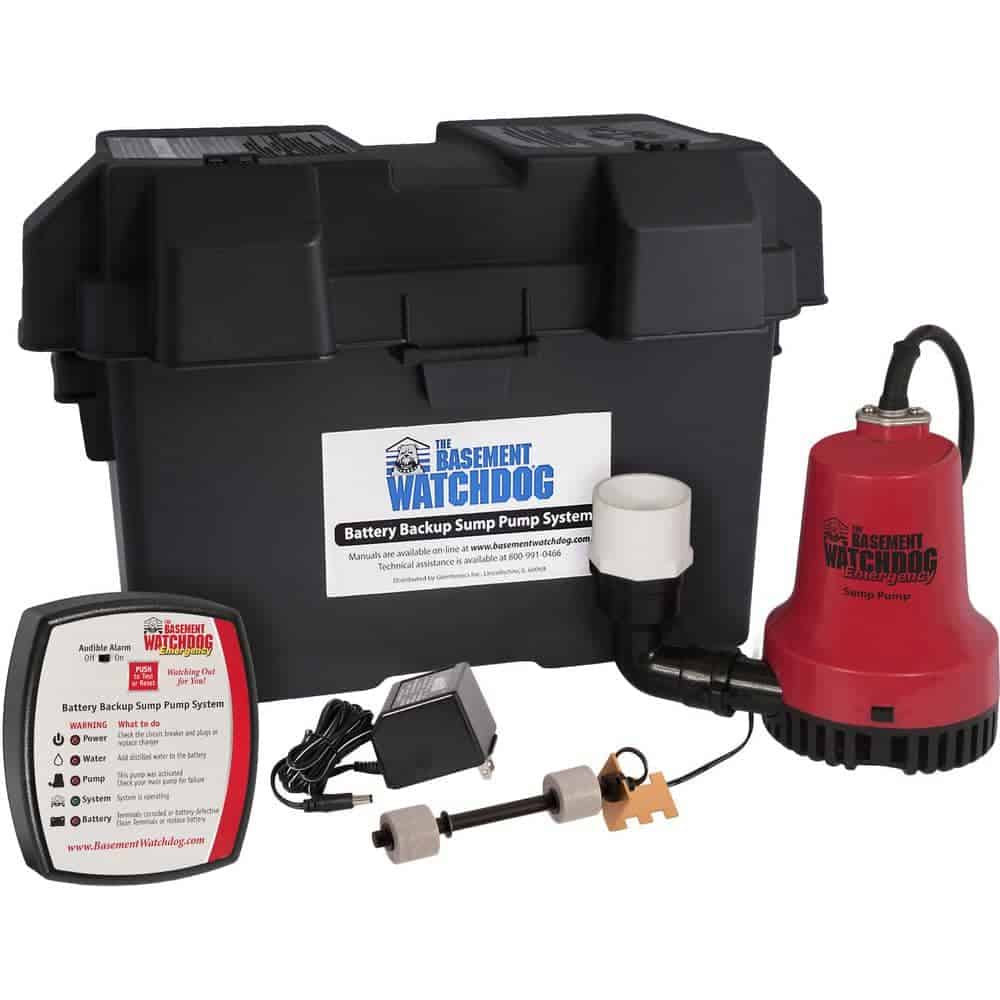Do Recycling Centers Take Sump Pump Batteries
Yes, recycling centers will take sump pump batteries. You can either drop them off at a center or recycle them through a mail-in program.
Recycling your sump pump battery helps to keep heavy metals and acids out of the environment. If you’re like most people, you probably don’t think twice about what happens to your used batteries.
You might just toss them in the trash, or maybe recycle them if your municipality has a battery recycling program. But have you ever wondered what happens to those batteries once they’re recycled? It turns out that recycling centers do indeed take sump pump batteries.
In fact, most recycling centers will accept all types of batteries for recycling. Sump pump batteries are typically lead-acid batteries.
Lead-acid batteries are among the most common type of battery in use today, and they’re also one of the easiest to recycle. Recycling centers simply crush the battery into small pieces and then extract the lead and other metals from the battery using a furnace.
The lead is then sold to companies that make new lead-acid batteries, while the other metals are sold to companies that use them in a variety of products. So next time you need to replace your sump pump battery, don’t forget that you can recycle it!
How Singapore fixed its big trash problem | CNBC Reports
Battery Recycling near Me
If you’re looking to recycle your used batteries, there are plenty of battery recycling options available. You can usually find a local battery recycling center by searching online or checking with your city’s waste management department.
Most battery recycling centers will accept all types of batteries, including lead-acid, nickel-cadmium, and lithium ion. Some centers may only accept certain types of batteries, so it’s always best to call ahead or check the website before making the trip.
Once you drop off your used batteries, the recycling process begins by sorting the batteries into different chemistries. The most common type of battery is the lead-acid battery, which contains lead and sulfuric acid.
Lead-acid batteries are typically found in cars and other vehicles. Nickel-cadmium batteries contain small amounts of cadmium, a toxic metal that can leach into soil and water if not properly disposed of.
Lithium ion batteries are often used in laptops and cell phones; they contain lithium cobalt oxide or lithium manganese oxide cathodes. The next step in the recycling process is to remove any hazardous materials from the battery using a method called “torching.” This process uses high temperatures to burn off any flammable materials like plastics or insulation that might be surrounding the metal cells inside the battery.
After torching, the metal cells are separated from each other using a machine called a “hydraulic press.” The cells are then chopped up into small pieces and sold as raw materials for new products like steel or aluminum cans. Lead acid batteries are recycled by crushing them into small pieces and then separating out the lead and other metals using a furnace. The metals are then sold as raw materials for new products such as car parts or pipes.
Home Depot Battery Recycling
Did you know that Home Depot offers battery recycling services? It’s true! You can bring in your old, used batteries and they will recycle them for you. Plus, you’ll be helping to protect the environment.
Home Depot Battery Recycling is a great way to dispose of your old batteries. Not only will they be recycled, but you’ll also be helping to reduce pollution and save natural resources. So next time you need to get rid of some batteries, make sure to take them to Home Depot!
Lithium Battery Recycling near Me
Lithium battery recycling is an important process to keep hazardous materials out of landfills and the environment. But where can you recycle your used lithium batteries? Here are a few options for recycling lithium batteries near you.
First, check with your local waste management company or department to see if they offer battery recycling services. Many communities have programs in place to recycle a variety of household items, including batteries.
You can also take your used lithium batteries to a retail store that sells them, such as Best Buy or Home Depot. Some stores have special collection bins for used batteries, while others will take them back at the customer service desk.
Finally, there are a number of private companies that specialize in recycling lithium batteries. You can find these businesses by searching online for “lithium battery recycling near me.” Be sure to ask about their fees and what type of packaging they require before sending your batteries off to be recycled.
Does Walmart Recycle Batteries
As one of the largest retailers in the world, Walmart is always looking for ways to be more sustainable and eco-friendly. So, does Walmart recycle batteries? The answer is yes! Walmart has battery recycling kiosks in all of its stores across the United States.
These kiosks are provided by Call2Recycle, which is the largest battery recycling program in North America. Here’s how it works: customers can bring their used batteries to a Walmart store and drop them off at the recycling kiosk.
The batteries are then sent to Call2Recycle where they are recycled and turned into new products. This is a great way to reduce waste and help the environment.
And it’s free – there’s no charge for dropping off your used batteries at a Walmart store. So next time you need to replace your old batteries, remember that Walmart can help you recycle them properly. It’s just one more way that they are working to make a difference for our planet.
Where to Recycle Alkaline Batteries near Me
The recycling process for alkaline batteries begins with the collection of spent or damaged batteries from businesses and consumers. Once batteries are collected, the recycler will test the battery to see if it is still usable.
If the battery is determined to be unusable, the recycler will then remove the cells and metals from the battery. The cells and metals are then cleaned and sorted into different types.
The sorted materials are then sold to companies that create new products from them. Alkaline batteries can be recycled at most local recycling centers. To find a recycling center near you, visit earth911.com or call 1-800-CLEANUP.
How to Dispose of Batteries in Texas
Batteries are an important part of our daily lives, powering everything from our cell phones to our cars. But when they reach the end of their useful life, it’s important to dispose of them properly to protect the environment.
In Texas, there are a few options for disposing of batteries. You can take them to a recycling center that accepts batteries, or you can drop them off at a household hazardous waste collection site.
You can also put them in the trash, but this is not recommended because it can be dangerous for landfill workers and the environment. If you choose to recycle your batteries, there are a few things you need to know.
First, you should remove the battery from any devices it powers before recycling it. Second, you need to find out what type of battery it is – lead-acid, lithium ion, or nickel-cadmium – as each type has its own recycling process.
Finally, you should call your local recycling center ahead of time to see if they accept batteries and what their procedures are. Disposing of batteries may seem like a small thing, but it’s an important way we can all help protect the planet.
Swollen Battery Disposal near Me
If your car battery is swollen, it’s important to dispose of it properly. A swollen battery can leak acid and cause damage to the environment.
You can take your battery to a local recycling center or auto parts store. Most stores will recycle the battery for free.
Travis County Recycling Center
Looking to recycle in Travis County? The Recycling Center is the place to go! They accept a variety of items including paper, cardboard, metal, glass, and plastic. You can also drop off your electronics for recycling.
The center is open Monday-Saturday from 8am-5pm. The first thing you need to do when you arrive is sort your materials into the appropriate bins.
Paper goes in one bin, cardboard in another, and so on. Once everything is sorted, head over to the weigh station where an attendant will help you unload and weigh your materials.
You’ll then be given a voucher for payment which you can take to the office to redeem for cash or store credit. So what are you waiting for? Start recycling today at the Travis County Recycling Center!

Credit: www.lowes.com
How Do You Dispose of Battery Acid in a Sump Pump?
If your sump pump has a battery backup, then you will need to know how to dispose of the battery acid properly. First, you will need to remove the batteries from the sump pump.
Next, you will need to neutralize the battery acid by adding baking soda to it. Finally, you can dispose of the battery acid in a plastic container.
Where is the Best Place to Dispose of Batteries?
The best place to dispose of batteries is at a recycling center. Most recycling centers will accept all types of batteries, including lead acid, nickel-cadmium, nickel-metal hydride, and lithium ion. You can also check with your local waste management department to see if they have any special requirements for disposing of batteries.
How Do You Recycle Lithium Ion Batteries?
Lithium ion batteries are one of the most popular types of batteries on the market today. They are used in everything from cell phones to laptops, and they have a very good track record when it comes to performance and longevity.
However, like all batteries, they eventually need to be recycled. The recycling process for lithium ion batteries is actually quite simple.
First, the battery is crushed into small pieces. This helps to separate out the different types of metals that make up the battery.
Next, a furnace is used to melt down the metals so that they can be separated out into their individual parts. Once the metals have been separated, they are then sent off to different recycling plants where they will be made into new products.
The aluminum will be made into new aluminum cans, for example, while the copper will be used in electrical wiring. The recycling process for lithium ion batteries is thus very efficient and helps to keep these materials out of landfills.
What Do You Do With Old Batteries in Oregon?
When it comes to disposing of old batteries, Oregonians have a few options. The first is to take them to a local recycling center.
Many centers will accept all types of batteries, including lead-acid, lithium ion, and nickel-cadmium. Some centers may even offer special programs for certain types of batteries.
Another option is to dispose of old batteries through the Oregon Department of Environmental Quality’s (DEQ) Hazardous Waste Program. This program provides guidance on how to safely dispose of many different types of hazardous waste, including batteries.
Finally, some municipalities in Oregon offer their own battery recycling programs. For example, the city of Portland has a program that allows residents to drop off their used batteries at any participating Fred Meyer or Bi-Mart store.
Conclusion
Yes, recycling centers will take sump pump batteries. Sump pumps are used to remove water that has accumulated in a sump pit, typically found in the basement of a home. The battery powers the pump when there is no electricity available.

